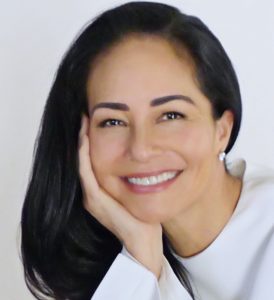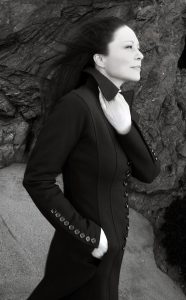 Dr. Elizabeth Kapu’uwailani Lindsey is our guest today. Listen in as she articulates, in breathtaking ways, what it means to be human, sovereign, and one’s own authority. A Polynesian explorer, Elizabeth has spent her life exploring some of the world’s most remote regions. She shares with us just how important it is to also courageously explore one’s internal terrain.
Dr. Elizabeth Kapu’uwailani Lindsey is our guest today. Listen in as she articulates, in breathtaking ways, what it means to be human, sovereign, and one’s own authority. A Polynesian explorer, Elizabeth has spent her life exploring some of the world’s most remote regions. She shares with us just how important it is to also courageously explore one’s internal terrain.
Elizabeth took the Hoffman Process over a dozen years ago. She says that the Process was, “quite profound”, and offers that it invited her “into deep and sacred places.”
Growing up on a remote part of the north shore of Oahu, Elizabeth spent a great deal of time with her indigenous elders. She learned a love for the land early on. She shares her stories from this early time in her life.

Elizabeth is the first Polynesian Explorer and female Fellow in the history of the National Geographic Society. A cultural anthropologist and award-winning filmmaker, Elizabeth travels to the world’s most remote regions as a conservationist of indigenous wisdom and an advocate for social, environmental, and cultural justice. Her keen insights and first-hand accounts from the world’s most fragile regions are reshaping Western perspectives on global leadership.
Elizabeth is also a filmmaker and an actor. In 1996, she directed and produced Then There Were None, a documentary chronicling the plight of native Hawaiians. She starred in Star Trek – The Next Generation and Magnum P.I., as well as many other shows.
In 1978, Elizabeth was crowned Miss Hawai’i. She was “Woman of the Year” for The Big Island of Hawai’i in 2004. And in 2010, she was awarded the United Nations Visionary Award.
Elizabeth is a member of the Hoffman Institute’s Advisory Council. Discover more about Dr. Lindsey here and here.
Elizabeth was a panelist on our Indigenous Voices: Answering the Call to Mend Our World panel at our first-ever Hoffman Virtual Conference, hosted April 1-3, 2021.
Podcast: Download (Duration: 47:12 — 43.2MB)
Subscribe: RSS